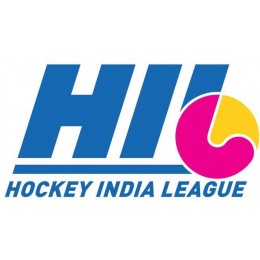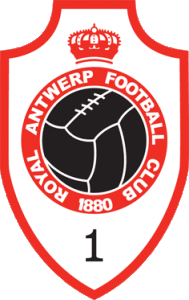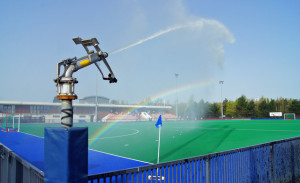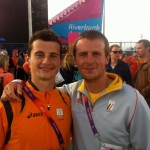We don’t need a global club competition, we need global development for hockey!

Are our sport officials doing what it takes to preserve our sport on the highest podium of all, The Olympics? Or is their focus too much on other matters? Probably also important to our sport, but I don’t think anyone will argue the fact that further developing our sport on a global scale to keep its place in the Olympic family should be on top of their priority list…
More or less a month ago I felt the urge to put some of my random thoughts in writing about the future of my sport, field hockey. The first article was “The future of hockey” and I followed it up by an open letter to the FIH & EHF. As all bloggers and wannabe writers I of course have the need to be read and heard… and applauded ;) Hey, I’m human… However I was not as naive to think I would get an actual answer from the federation presidents I addressed with my open letter. I got some fans, some (international) players, some coaches, some club presidents and actually also some presidents of national federations to acknowledge the ideas in these articles. But you’ve guessed it… no answer from the people I actually wrote it to… no suprise there.

Last weekend the hockey community enjoyed once more the EHL, freezing their ass of in Amsterdam or warm & cosy behind the computer or TV at home or… even on the move the nice new EHL app gave us the possibility to enjoy the live streaming images from the Wagener Stadium. The people from Pro Sport and the EHF helped change the hockey sport for the better when they introduced their EHL 5 years ago. I was fortunate to be the organizer of the very first EHL at my club Antwerp (together with the dutch club HGC) and immediately became a big fan of their innovations. As you would expect not all of the aspirations for the EHL from those early days came true, the economic crisis struck hard when it was to time to harvest the potential sponsors to help fulfill the dreams they had at the start. But you’ve got to admire and respect those people at Pro Sport and especially the ABN Amro for sticking with it and continue to build the brand of the EHL and hockey. They might not have scored the biggest crowds for all matches, nor the other sponsors (yet) to help build the sport. But they’ve brought us a new standard of TV images promoting our sport and several innovations in the rules of the game that truly have added value to our sport and you have to applaud that…

Another recent and very welcome additional event for our hockey sport has been the recent HIL (Hockey India League) which has brought his own innovations to the sport and has immensely been appreciated by the international top players, the Indian sponsors, media and public. However I do not see any benefit in wanting to integrate both these wonderful initiatives as read in the press recently. The HIL is different from the EHL and that should not change because India is different from Europe and it has the potential to help revive Indian (and Asian) hockey to new standards and help them regain their position among the top in the world.

Which of course would also be beneficial for our sport on a global scale… Important to help keep our sport on the agenda for the Olympics. Because we must not neglect the warning that has been given recently by the IOC about the Olympic status of our sport. We might have been a big hit as a sport at the London Olympics last year, but this was not the case in Beijing or Athens and most likely hockey will not draw the biggest crowds to the Rio stadiums either.
To keep our Olympic status the international federation (FIH) has to focus on two issues that are hurting us at the moment :
- We need hockey representation within the IOC, which has been lost when Mr Negre took over the FIH presidency from IOC member Mrs Van Breda Vriesman.
- We need to focus on (re)developping our sport on a top and (!) grassroot level in important countries such as France, Spain, Brazil, USA, India, Pakistan, Japan, China, etcetera…
In the developped countries (in hockey terms) the focus should be on broadening the basis of our sport, with good infrastructure, better youth academies and a strong focus on further developping both recreational and top hockey. It is not a necessity to become a competitor for a sport such as football, but we do need to grow in numbers as a family friendly sport where respect is not just a catchphrase in marketing but seen and lived on and alongside the hockeypitches all over the world. That will attract the corporate sponsors we need to help improve our sport every year.

We can only assume (or maybe hope is a better word) our officials in national and especially international federations are working along these lines but to be honest I think it is a bit alarming we see so little evidence of this. In governement politics – somewhat related or similar to sport politics I would guess – one of the hottest items at the moment is “open data“. I do think we need some of that from our federations as well to help us understand in which direction our sport is growing, what is being done and what could be our contribution…
Maybe with the newest shareholder of the EHL, Infostrada Sports Group, they could get some (data & communication) expertise in house for such an “open data” project. Because frankly I am worried when I (as an engaged hockey supporter) once again see & hear tales about these ideas for a new global club competition from the officials. We do not need such a competition! It will not attract new hockeysupporters nor players nor sponsors that last and really contribute to the development of our sport. And in my humble opinion it will even be damaging for our sport because it takes the focus away from those things that do need to be done : development of our sport in those countries that can make a difference (both developped and developping countries with regards to hockey) through infrastructure and improving tophockey to stimulate recreational hockey!
So my message to the FIH and other relevant officials is please do continue developping the World League, but please forget about this global competition for clubs and focus on getting our IOC representative back and on developping hockey in key countries on every continent. And maybe invest some more attention towards open data (and communication) to reassure (or at least inform) us about the direction our officials are taking our sport… because I’m not reassured by some kind words from the parting IOC president Rogge about our sport. I think we need to do what needs to be done to make sure our sport is never doubted again to be a deserving member of the international family of sports.






 Er zal op een geheel nieuwe manier omgegaan moeten worden met het concept “intellectual property”… voor velen vandaag de dag nog steeds de Heilige Graal. Ik weet niet of het zo snel zal gaan als Tapscott voorspelt (voor eind 2013) maar de bal is aan het rollen en ik zie niet in hoe dit kan worden stopgezet. Met de open source revolutie in de software wereld als voorbeeld… Maar de boodschap is dus duidelijk, zoek niet naar de juridische oplossing om je belangen te vrijwaren, zoek naar het gemeenschappelijk belang dat je groei zal brengen…
Er zal op een geheel nieuwe manier omgegaan moeten worden met het concept “intellectual property”… voor velen vandaag de dag nog steeds de Heilige Graal. Ik weet niet of het zo snel zal gaan als Tapscott voorspelt (voor eind 2013) maar de bal is aan het rollen en ik zie niet in hoe dit kan worden stopgezet. Met de open source revolutie in de software wereld als voorbeeld… Maar de boodschap is dus duidelijk, zoek niet naar de juridische oplossing om je belangen te vrijwaren, zoek naar het gemeenschappelijk belang dat je groei zal brengen… De toenemende vrijheid van informatie (transparantie & delen – weet je nog wel) verandert de hele maatschappij. Vrijheid is de drijfveer voor de open wereld waar we naartoe evolueren. Informatie is macht was en is het credo van het oude tijdperk, maar die informatie komt meer en meer vrij ter beschikking van een heleboel geëngageerde mensen. Tapscott’s visie op dit laatste element zal onze gekende organisatievormen voor bedrijven en instituten drastisch veranderen. Hij verwijst naar het voorbeeld van een variatie op “zwermen” spreeuwen, “murmurations” zoals hij ze noemt als een mogelijke krachtig nieuw model van samenwerking, waar leiderschap wel aanwezig is maar niet in de vorm van 1 leider… Een boeiende gedachte die langzaamaan – maar sneller dan we vermoeden – vorm zal krijgen…
De toenemende vrijheid van informatie (transparantie & delen – weet je nog wel) verandert de hele maatschappij. Vrijheid is de drijfveer voor de open wereld waar we naartoe evolueren. Informatie is macht was en is het credo van het oude tijdperk, maar die informatie komt meer en meer vrij ter beschikking van een heleboel geëngageerde mensen. Tapscott’s visie op dit laatste element zal onze gekende organisatievormen voor bedrijven en instituten drastisch veranderen. Hij verwijst naar het voorbeeld van een variatie op “zwermen” spreeuwen, “murmurations” zoals hij ze noemt als een mogelijke krachtig nieuw model van samenwerking, waar leiderschap wel aanwezig is maar niet in de vorm van 1 leider… Een boeiende gedachte die langzaamaan – maar sneller dan we vermoeden – vorm zal krijgen… Vertrouwen
Vertrouwen Through the most recent phenomenon in international hockey, the HIL or Hockey India League, we once again were confronted with the diversity of the world and of course also the world of sports. And while the echo of the Indian fireworks at the HIL finals could still be heard the IOC almost cut our sport from its most prestigious podium, the Olympics. Reasons for almost being cut were , as heard through the grapevine, the image of being a sport of the Commonwealth nations but not anywhere else… Strange reasoning if that were the case. Germany, The Netherlands, Spain, Argentina, Korea are, to name but a few well performing hockeycountries at international level, not any part of the Commonwealth. Champions have come from all continents in recent history. However we must not be blind to the fact that we’re not exactly part of the major sports on a global scale and so there is still a lot of work ahead for the FIH…
Through the most recent phenomenon in international hockey, the HIL or Hockey India League, we once again were confronted with the diversity of the world and of course also the world of sports. And while the echo of the Indian fireworks at the HIL finals could still be heard the IOC almost cut our sport from its most prestigious podium, the Olympics. Reasons for almost being cut were , as heard through the grapevine, the image of being a sport of the Commonwealth nations but not anywhere else… Strange reasoning if that were the case. Germany, The Netherlands, Spain, Argentina, Korea are, to name but a few well performing hockeycountries at international level, not any part of the Commonwealth. Champions have come from all continents in recent history. However we must not be blind to the fact that we’re not exactly part of the major sports on a global scale and so there is still a lot of work ahead for the FIH… In other parts of the world the entire concept of a club (with teams for young and old, men and women and entire families participating in club life) is unknown. In India for example, as most if not all Asian countries, clubs for sports do not exist. Indian hockey doesn’t have a club competition, it has the tradition of sports at school and it has teams playing for their company or other employer (army, postal services, police, …). And these teams meet in tournaments, not in competitions that last for several months during a year. Lots of reasons exist for these differences, besides obvious cultural differences, distance is often a reason. But another very important reason is infrastructure… The choice for waterbased pitches as the international standard has not made it easier to develop our sport of hockey globally. Water is an issue in most parts of the world, we tend to forget that over here…
In other parts of the world the entire concept of a club (with teams for young and old, men and women and entire families participating in club life) is unknown. In India for example, as most if not all Asian countries, clubs for sports do not exist. Indian hockey doesn’t have a club competition, it has the tradition of sports at school and it has teams playing for their company or other employer (army, postal services, police, …). And these teams meet in tournaments, not in competitions that last for several months during a year. Lots of reasons exist for these differences, besides obvious cultural differences, distance is often a reason. But another very important reason is infrastructure… The choice for waterbased pitches as the international standard has not made it easier to develop our sport of hockey globally. Water is an issue in most parts of the world, we tend to forget that over here… Enkele weken geleden werden de Red Lions, de Belgische nationale hockeyploeg bij de heren, de ploeg van het jaar op het jaarlijkse
Enkele weken geleden werden de Red Lions, de Belgische nationale hockeyploeg bij de heren, de ploeg van het jaar op het jaarlijkse 
